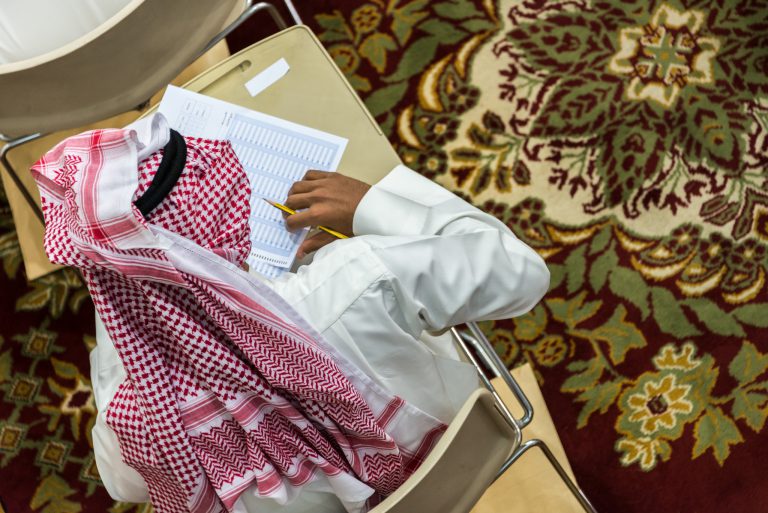
For many years, oil has been big business in Saudi Arabia, since the Kingdom is home to 18 percent of the world’s proven petroleum reserves and ranks as the substance’s largest global exporter.
But over the past 18 months, falling prices of oil have turned the region from one of the world’s wealthiest countries and providers of student scholarships, into one of the most struggling competitors within the global marketplace.
The industry crash has left the Kingdom fighting against a colossal deficit of $100billion, requiring a significant cut back of the region’s overall expenditure. Aramco, the region’s main oil producer, exports more than 10 million barrels of the substance each day, but the revenue this generates is not enough to cover costs of Saudi’s daily expenditure, and the per-barrel price of oil remains unlikely to rise, leaving the country’s economy in an increasingly delicate state.
SAUDI ARABIA – Merger prompts fears for future of higher education – University World News https://t.co/D5gJd2BTzP #highered
— ECE Connection (@ECEConnection) November 16, 2015
Aramco still holds 15 percent of the global oil industry, but international contenders like the USA are tactically matching prices to prevent being undermined. Recent sanctions against Iran, which means the country can now trade one million barrels a day on the global marketplace, have also given Saudi Arabia’s most profitable industry a considerable run for its money.
Growing instability within Saudi’s oil industry has led the government to cut back the country’s spending, and Saudi Arabia’s higher education sector has been one of the hardest hit.
The Kingdom, once one of the largest providers of university scholarships, has enforced a significant reduction on the money spent educating students overseas, and the recent cancellation of the ICHE 2016 Conference, the largest student recruitment exhibition in the Middle East, has raised the alarm among higher education’s other global contenders.
Saudi #Aramco keeps up investment despite crude fall #السعودية https://t.co/0l0OlPHh1o pic.twitter.com/nthPMtkpi5
— The Peninsula (@PeninsulaQatar) January 25, 2016
Thousands of prospective students are said to attend the annual event to secure their future at university, many with the hope of receiving sponsorship from Aramco or even the Kingdom itself. The cancellation has prevented the event from running for would have been its seventh consecutive year. It remains unclear whether the repeal was a purely financial decision, but one university representative noted, “all the signs point to it being because of money”.
Cancellation of the event is one thing, but distribution of the scholarship funding is an increasingly damaging issue. There has been no official report announcing a decrease in funding for the King Abdullah Scholarship Programme, though many sector professionals have already noticed a decline in the number of sponsored students.
An esteemed agent of Higher Education based in Riyadh, who wished to remain anonymous, told The PIE News that the crisis marks a “clear change in direction for the country”, adding that “the issue is around a lack of transparency on the decisions and why they are made.
Question on @bbc5live Do we need to rethink rel’ships with Saudi Arabia? Is this also a Q for higher education instit’ns? @BundyC @luciebd
— LisCManc (@LisCordingley) October 13, 2015
“We’re already moving our focus more to the private market,” he went on, before noting that “Saudi will always need scholarships.”
Last year, plans to take the allocation out of the hands of Saudi’s Ministry of Education and into the control of various government departments were announced. The plan, implemented this year, requires individual ministries, such as health and labour, to determine skills needed within the region’s industries and co-ordinate various scholarships in accordance with the demand. The decision to merge scholarships to labour shortfalls is introduced with the tagline “Your job, your scholarship”, and though this will be useful in forming and delegating a highly-skilled workforce, it comes with a considerable reduction in the number of awarded scholarships.
Education professionals remain concerned about growing instability surrounding higher education, one of Saudi Arabia’s most profitable sectors. Many worry the Kingdom’s hefty deficit will continue to increase if an international partnership is not formulated soon, and if the region’s oil industry cannot be maintained, student mobility and accessibility in Saudi Arabia will continue to suffer.
Image via Shutterstock.
Liked this? Then you’ll love these…
Universities in Bahrain Seeking to Boost International Student Population
With international student enrolment falling, Australia should focus on Latin America, Middle East







